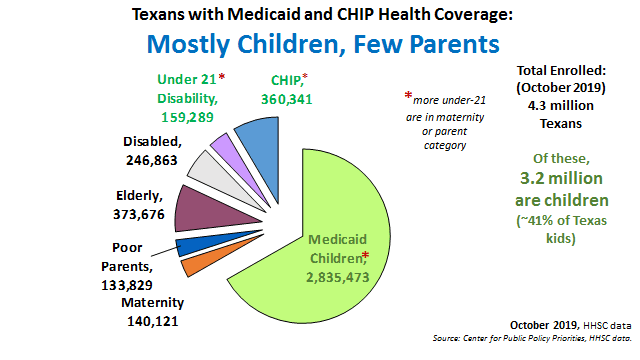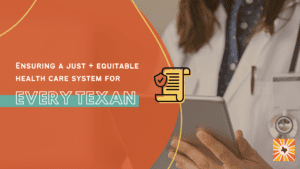

Equity in Focus
Texas leaders’ choice to refuse federal funds for Medicaid Expansion–estimated at $10 billion per year–has a disproportionate effect on uninsured Hispanic adults in Texas. Of the 1.5 million uninsured Texas adults who could enroll under a Medicaid Expansion, 57% are Hispanic, compared to just 39% of adult Texans 19-64 (13% are African-Americans, on par with their share of adult Texans). Studies have found Medicaid Expansion linked to reduced disparities by income or race/ethnicity in measures of affordability or financial security, including: significantly reduced medical debt and collections, better credit scores, lower over-limit credit card spending, and reduced evictions, bankruptcies, and wage garnishments.






